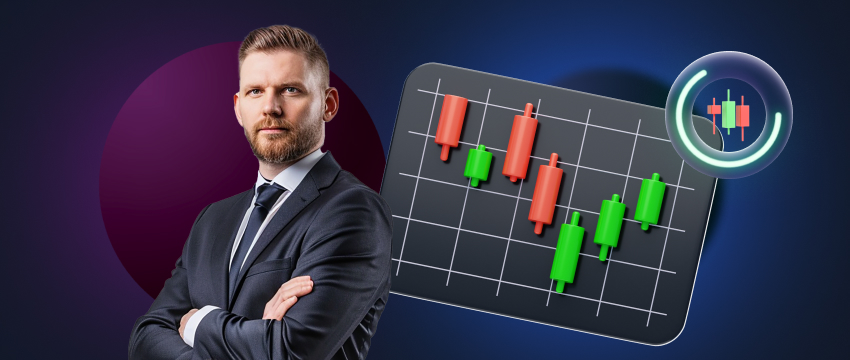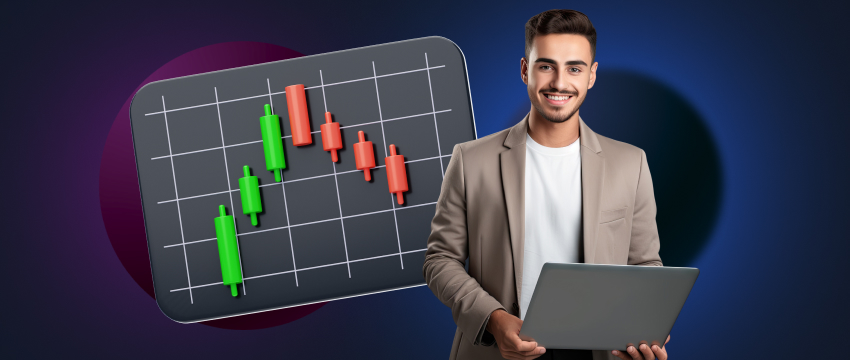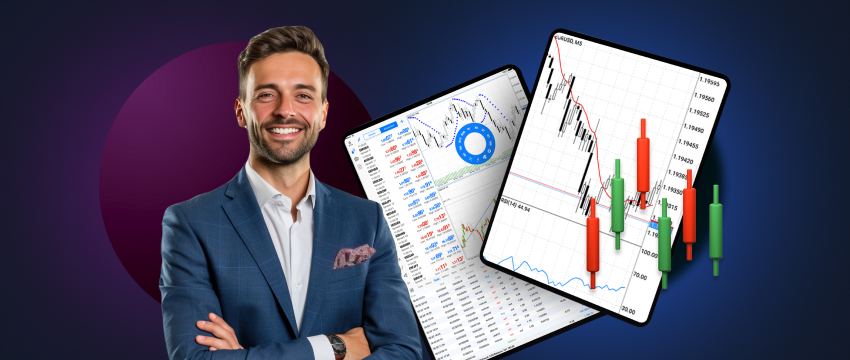CFD trading is renowned for its risk, particularly in comparison to other forms of investment. So much so that if not properly managed, CFD trading can incur substantial losses for traders. Up to almost 70% of their capital in fact. In this article, we’ll discuss some of the ways that so many CFD traders lose money.
1. CFD traders mismanaged use of leverage
Leverage holds considerable appeal to CFD traders. CFDs are highly leveraged financial instruments. What makes leverage so popular is that it provides traders with a way to gain considerably more exposure to a financial market with a limited budget. Leverage ratios of up to 20x the trader’s deposit (margin) amount are not uncommon. But leverage is the proverbial double-edged sword.
Because whilst it can increase the likelihood of magnifying a CFD trader’s potential for high returns, so too can it amplify losses. The reason for this is that the loss is calculated on a trade’s entire value, in other words, the full leveraged amount. As a result, the trader is at risk of losing all their money.
Margin call
If a trade moves in an unfavorable direction and a trader’s account balance drops below a certain threshold, the broker may issue a margin call. When this happens, the trader will be asked to deposit additional funds to cover the loss or exit the trade to limit further losses.

2. Unanticipated volatility in the market from CFD traders
CFD trading involves traders speculating on the anticipated direction of price movements for an underlying asset. The trader essentially seeks to establish whether prices will go up or down. If the belief is that they’ll increase, the trader will typically go long on a position.
Oppositely, if the trader believes prices will fall, they’ll choose to go short in all likelihood. The challenge lies with how quickly markets can be impacted by unanticipated events or news releases, resulting in aggressive market volatility. Should this occur, the price of an underlying asset may move adversely, sometimes quickly and totally out of left field.
Consequently, a CFD trader’s position may be closed or they may be pushed to sell at a loss (possibly due to margin calls), losing their money. But what types of events or news announcements can influence the market so significantly? Well, any one of the following has the power to significantly drive prices up or down:
- a shift in governmental policy
- geopolitical tensions or instability
- financial releases
- interest rate hikes
- unemployment rates
- central bank announcements or policies
- industry trends
- market or investor sentiment
- environmental disasters
- pandemics
3. CFD traders’ psychology and the impulsive need to overtrade
Trading psychology is a very real phenomenon. It refers to the influence that one’s emotions and feelings can have on trading decisions – good or bad.
This may lead to impulsive decisions, like excessive trading (overtrading), based on gut feeling as opposed to clear trading opportunities. Traders may even become addicted to the thrill of trading or experience FOMO (fear of missing out), leading to compulsive behaviors, causing them to enter an unnecessary number of trades, even when market conditions are unfavorable.
There are even situations whereby traders have difficulty accepting losses and may engage in overtrading to try and recuperate their losses. This can however lead to a cycle of increasing risks and more loss of capital.

4. Counterparty risk
Another way a CFD trader can lose their money is if the CFD broker goes bankrupt or becomes insolvent, making it difficult for a trader to access or recover their funds. Remember, a CFD is an agreement entered into between a broker and a trader. Through this agreement, the trader speculates on the price movements of an underlying asset. The asset itself varies, be it currency pairs, metals, commodities, indices, stocks, etc. The instrument being traded however is the contract itself, as the trader does not have ownership of the underlying asset.
Additionally, only the broker (i.e., the counterparty) who issued the CFD can close it. This means that both the trader and the broker require to adopt proper risk management strategies, for the trader to safeguard their capital, and for the broker to ultimately stay operational. Taking this into account, a trader may also have to deal with the possibility of the CFD broker taking an opposite position to them, should the need for the broker arise.
This makes the need for choosing a reputable CFD broker critical. Do your homework, listen to feedback from other traders, read online testimonials and reviews, and conduct proper due diligence. Take it one step further and consider opening a demo trading account with your preferred broker to get a feel for their customer support, level of contactability and engagement, trading platform, transparency, etc. Additionally, ensure the broker is regulated.
Handling CFD trading risks to protect your money
There are several ways a CFD trader can safeguard the funds in the course of trading CFDs.
Here are some of the most popular:
Risk management plan
- Create and implement a risk management plan that incorporates techniques including stop-loss or take-profit orders on your CFD trades. A stop-loss order ensures that a trade will automatically close if the market moves in an adverse direction. When it closes is based on when a predetermined price is reached. Similarly, a take-profit order will take effect when a profit threshold is reached, at which the position is closed. Other well-known tools are trailing stop orders and limit orders.
- Ensure your risk management plan and trading plan are in alignment. Your trading plan should also integrate your specific CFD trading goals, the level of risk you’re willing to incur, the time you have to invest in trading, and the budget you have available. Sticking to your plan ensures you remain disciplined, mitigating the risk of emotive trading. This is not to say that a trading plan can’t be adjusted, it can. But ensure this happens only when necessary, rather than due to feelings of greed or fear.
CFD traders Leverage
- Handle leverage incredibly carefully. We cannot stress just how much money can be lost if you over-leverage or simply don’t know how to manage it properly. This is especially important if you’re new to trading and lack the experience required to manage leveraged products. If you are a novice trader consider trading smaller position sizes until you’ve gained the expertise to handle considerably larger amounts.
Learning more and more
- Invest in ongoing learning, regardless of whether you are new to trading or not. Education is key to boosting your skills, keeping informed, and strategizing more effectively. Educational trading resources come in many different forms, catering to all learning styles. This includes videos, podcasts, ebooks, guides, blogs, webinars, seminars, Live TV and more. Most of these resources are available online, many for free as well. T4Trade is a powerful broker that offers its traders free access to an extensive pool of CFD trading tips, insights, and tools to optimize the trading experience.

Why become a T4Trade CFD trader?
T4Trade is a popular broker used by traders worldwide to execute their trades. The broker’s appeal lies in its top-tier service offering. This includes a variety of customized account types, flexible leverage, fast deposits, and withdrawals, quick execution of orders, and tight spreads. The service offered by T4Trade is further enhanced by a robust customer support team who are available 24/5 to help traders with all their queries. The team is multilingual, and knowledgeable, and can be reached through varied communication channels like live chat and email.
Disclaimer: This material is for general informational and educational purposes only and should not be considered investment advice or an investment recommendation. T4Trade is not responsible for any data provided by third parties referenced or hyperlinked in this communication.




